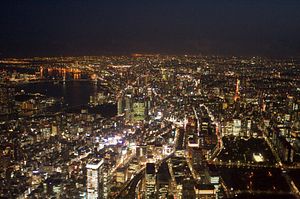Anticipating a growing threat from North Korea, Japan plans to hold its first-ever evacuation drills for an incoming ballistic missile attack this year.
According to the Nikkei Asian Review, specific Japanese municipalities “will be selected in January for participation in the drills, which are to take place as early as March.”
Japan plans to use its nationwide J-Alert warning system to implement procedures for evacuation in the event of an incoming ballistic missile.
According to Nikkei, the government will derive procedures to guide residents in the area under threat in the event of an attack, telling them “what to do in the 10 to 15 minutes it would take for a missile to hit Japan.”
North Korea conducted an unprecedented 24 ballistic missile tests in 2016, in addition to two nuclear tests it claimed involved a thermonuclear bomb.
“The focus will likely be ensuring residents are prepared to seek shelter indoors — preferably underground — in the event of a missile threat,” the Nikkei adds.
For the first time ever, a North Korean Nodong launch last year resulted in a splashdown inside Japan’s exclusive economic zone in the Sea of Japan, drawing sharp criticism from Japanese Prime Minister Shinzo Abe.
Abe described that launch as a “grave threat” and “an outrageous act that cannot be tolerated.” Shortly thereafter, Japan instituted an open-ended standing intercept order for its missile defense batteries. (Despite the order, Japan’s land- and sea-based interceptors may not be capable of stopping North Korean missiles.)
On Thursday, the U.S. Navy additionally announced that it would deploy Northrop Grumman Corp E-2D Advanced Hawkeye advanced early warning aircraft to Japan to bolster the country’s air defenses and deter missile attacks.
“The Advanced Hawkeye’s suite of systems allow it to act as the ‘digital quarterback’ of the fleet, collecting and distributing the tactical picture to command centers and other assets,” the U.S. Navy said.
With a new administration set to take office in the United States on January 21, Abe will be looking to promptly carry on bilateral cooperation through the alliance.
Given the intensifying North Korean threat, which U.S. President-elect Donald Trump has also recently commented on, Abe will be eager to continue cooperation with the United States on missile defense.
According to Japanese media reports, advisers to Abe and Trump alike have confirmed an early bilateral summit between the United States and Japan following the U.S. inauguration.
Following Trump’s election victory on November 8, 2016, Abe became the first foreign leader to travel to New York City and meet the incoming U.S. president.

































